Well, hey. I’m pretty sure I’ve tried to start writing this blog post at least 10 times over the past two years. But each time I’ve gotten close to writing out my thoughts, or entering it into WordPress, I stop myself.
“Now’s not the time.”
“Don’t make a fool of yourself.”
“You’ve got it good. Don’t make any unnecessary enemies.”
But, you know what? It’s been a rough couple of years. I’ve watched this weird industry of travel blogging rise and fall over the past eight years (travelsofadam.com has been online since 2009). Friends have come and gone. Writers I once admired and religiously followed have disappeared. They’ve quit. They’ve moved on to different projects.
Starting any new endeavor, especially these DIY/entrepreneurial ones, is going to come with its own set of unique challenges. But travel blogging is different. (I know, I know, I hear you now: everyone thinks their own experiences are somehow different or unique… I’m ranting and that’s that. If you don’t want to hear my story, don’t.)
The art of travel writing has been around for centuries. Hell, the name of my own travel blog is derived (in part) from Marco Polo’s accounts from his travels around the world (Did you know he wrote a book? The Travels of Marco Polo).
Travel writing, and in its newest form: travel blogging, means a lot of different things to different people. Stories were once told to encourage tourism, to inspire others into exploration (no matter where to or how far). Some of the best travel writing doesn’t even have to inspire people to visit a particular place; it’s about the adventure, the joy of something new.
Of course as the tourism industry has grown (it’s one of the world’s largest industries employing 12 million people in the EU alone, generating unfathomable amounts of income for some people I’m sure), so it has its capitalistic goals.
Guidebooks were once a guardhouse of local secrets, but as the world grows, as travel becomes more accessible, as globalization standardizes (and modernizes) the world, many of our adventures abroad become increasingly familiar.
I’m guilty in this, of course. We all are.
But this is about travel blogging. A newer industry, one that’s popped up thanks to the relative ease of the internet, the accessibility and decreasing cost to travel, and our new collective, compulsive desire to share everything with everyone.
(This is going to get grim, fyi. If you don’t want to read about the ins and outs of travel blogging, feel free to browse my archives.
5 Lies about Travel Blogging
Travel blogging has changed a lot since I’ve been online. Below are a handful of things I’ve seen and heard other bloggers share and shout repeatedly. Successful bloggers always seem to say a lot of the same things. But not everything is always the same.
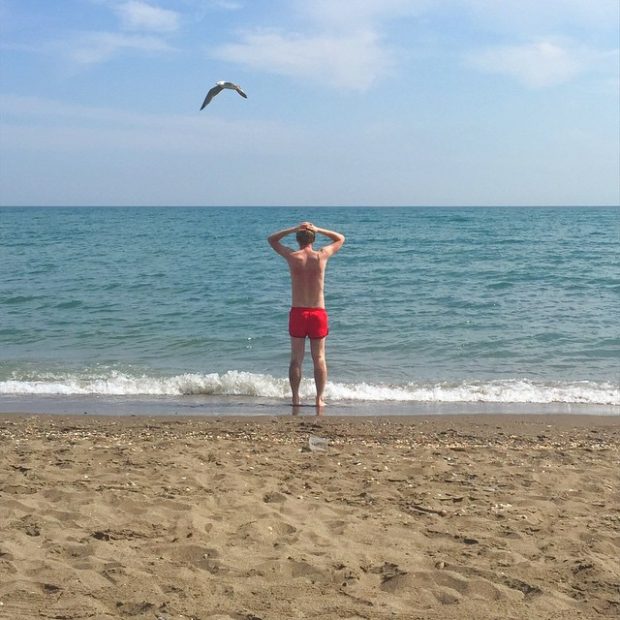
1. “it’s a community”
This lie is sweet and more than a little sad. When I first started out in travel blogging, there was this great little camaraderie among other bloggers. We chatted on Twitter, shared tips and secrets. I even organized at least four different travel Twitter “tweetups” while I was living in Boston.
I met other travel bloggers while I traveled to places like Washington, D.C., Valencia, and even on the one-time sleepy Palolem Beach in Goa.
Today, as blogging has grown and grown and grown, it’s a bit harder to have a real sense of community. Of course, there are benefits and disadvantages about all of this. But here’s the lie: many bloggers still talk about those original, golden days as if they’re still the norm. Today’s travel bloggers still meet in person—but more often on press trips or at travel blogging conferences.
And “community”? It does still exist—but mostly online: in Facebook groups where bloggers agree to secretly comment on each other’s latest posts, where they follow and re-pin each other’s Pinterest pins, where they retweet and schedule each other’s content to automatically post to Twitter.
Some bloggers even charge one another just to meet for a coffee (“consulting”)—prioritizing their income and time over their desire to meet other entrepreneurs, other travelers.
Honestly, it’s all very sad. In our digital age, real, true, physical communities are harder and harder to find. Don’t believe the Kool-Aid that travel blogging is a lovely little community. Competition has turned the industry more sour than sweet.
But don’t fret because there are those bloggers trying to rebuild communities, those that are there for the sake of travel and traveling. More and more bloggers are taking their communities offline—realizing this desire to disconnect digitally and reconnect as a supportive community offline through meet-ups and travel-themed events.

2.“it’s all about good writing.”
False.
When I started travel blogging, Instagram didn’t even exist. Today, Instagram pretty much owns the tourism world. Words have all but disappeared. And notably: “travel blogging” has come to be the umbrella term for all types of digital blogs & other content. Even that recent hoopla about the “travel blogger” who was rejected by the hotel for a pitch? Almost. all. the. articles. identified her as a “travel blogger” when in reality, she’s a vlogger with a YouTube channel and no real platform for sharing written words.
Some may no longer call themselves travel bloggers, but travel influencers or content-makers. And there are photographers and videographers and content writers and Instagrammers and YouTubers and “personalities.” To be a successful travel blogger today, you don’t have to be a writer because travel writing is no longer about words, but about images (still or moving) and influence.
In fact, many destination tourism offices no longer spend the bulk of their money inviting journalists to a destination to tell unique stories, but rather spend it on Instagram influencers (generally regarded by the industry to be the best way to do destination marketing).
It’s unfortunate because the written word is still very powerful. You can shout out that a picture is worth a thousand words, but when Instagram influencers are purposely digitally altering their images with fake sunsets and Photoshopping themselves on bridges that people can’t actually walk on—it’s just perpetuating more fake news.
How does that help people to travel more? Some Instagrammers have even found success by simply using stock photography available to everyone—just slightly altered and with their own content and captions alongside it.
Travel blogging should be about good writing. It should be about stories and storytelling. Thankfully, for every Instascam, there’s a blogger out there focused on storytelling. And even if those in the tourism industry aren’t spending their money on stories right now, eventually they’ll be back.
Because still: the most prestigious and legitimate tourism awards focus on authentic storytelling and true photography rather than the mass-market variety propped up by many influencers.
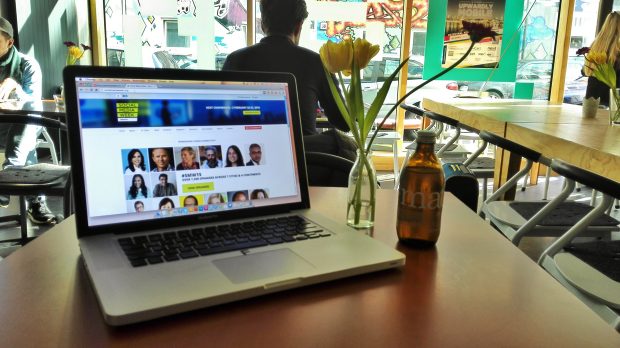
3. “own your own platform”
Oh how I wish this were true! Most travel blogging courses will tell you that the best way to be successful as a travel blogger is to own your own platform. Get a self-hosted WordPress account, buy your own domain and website host, and create content to your heart’s content.
When you own it, you can monetize it in your own way and you’re not dependent upon any outside, uncontrollable sources for your own success.
While that’s theoretically true, there are just as many successful get-rich-quick schemes where the content creators (the “travel bloggers”) do not own their own platform and they’re oftentimes way more successful.
In one article about Instagram influencers, I read that a top travel instagrammer makes up to $9,000 per sponsored Instagram post with his 2+ million followers. Within some of the networking groups I’m a part of, bloggers openly discuss the need to get up to 100,000 Instagram influencers to make $2,000 or more for sponsored Instagram posts.
Meanwhile, sponsored content on blogs sells for far less and comes with far shadier marketing practices. There’s a huge disconnect between sponsored content on one platform to the next.
Should you own your own platform? 100% yes. But do you have to? Definitely not. Many Instagrammers and YouTubers in the travel space have recently come to realize this and are starting their own blogs and websites.
They’ve realized it’s a bubble waiting to burst and they’re trying to find ways to move their communities built on outside platforms to a website or email list that they can manage and control.
4. “don’t buy followers”
Okay this is a tough one for me on so many different levels. First off, I’ll state for the record that I absolutely hate the idea of buying followers OR engagement. As someone who really loves and believes in social media, it’s so disheartening to see those try to game the system for some super capitalistic, commercial, self-serving reason.
The thing is: it fucking works and no one seems to care. Even the professional PR and marketing teams don’t care so long as they can prove results for their managers.
Successful bloggers and “social media” superstars / influencers will scream at the top of their lungs about being authentic and original. But what they don’t tell you is that a lot of that initial push toward success came from paid-for social media follows and engagement. I 100% blame Instagram and the tourism industry’s push to make that the only platform that matters.
But it’s not just Instagram. Some bloggers automate their Twitter feeds to be beyond any human recognition, YouTubers engage in “pods” to beat algorithms, and bloggers religiously comment on each other’s sponsored content through secret Telegram and Facebook networking groups.
It’s all engagement faked by influencers which they claim boosts their authority in an attempt to “beat” unfriendly social networking algorithms.
Sure, The New York Times may have famously uncovered this underbelly of the social media influencer world a few weeks ago with their story “The Follower Factory” but the thing is: it’s not just so-called influencers that are doing this. It’s the whole industry! PR professionals and fashion PR agents are pimping out their clients’ profiles with thousands of fake followers and fake engagement.
I know at least one travel magazine startup that was buying Instagram likes on their sponsored photos from hosted hotel stays. Just about every single one of the traveling gay couples automates their Instagram engagement to the point that not one, but TWO separate ex-boyfriends have written me asking why certain gay bloggers keep following and unfollowing them. It’s not limited to travel, but definitely rife in the LGBTQ world, feeding narcissism.
I’m not immune to this, either. Watching every single one of the top bloggers in my niche engage in this crap and then watching them overtake me in every way, and winning awards and recognition for their top-quality fake social media strategy, I spent six weeks on the Instascam bandwagon before hating myself and calling it quits.
And here’s the real kicker: it actually works! Sure, other bloggers will notice and they’ll call you out on it. But the vast majority of people just don’t care. They just see numbers go up and up and the professionals in the industry are either too lazy or too overworked to try and decipher who’s done what to get where.
Don’t buy followers? False. You can and arguably even should. Maybe you’ll get caught or maybe you’ll win an award. Could go either way.
PS: The truly sneaky and devious strategy here is that some professional, full-time Instagrammers will actually buy call-outs and regrams of their photos by other much larger accounts.
It’s all done in secret through fake names and PayPal payments, but you’d be surprised how often it happens. And how many of them continue to get away with it? Does anything even matter anymore?
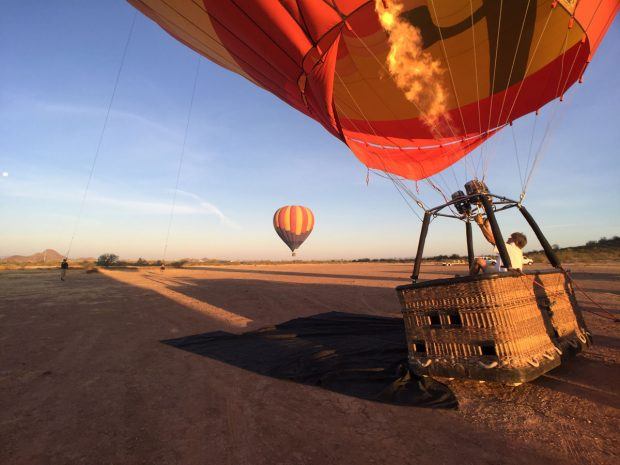
5. “you’ll get to travel the world”
I’m so, so, so sorry to break this myth. But as a travel blogger, you simply will not get to travel the world so easily. The best travel blogs out there did not start as blogs because they wanted to see the world; they started because they were already out there seeing the world.
It’s a hard truth for many newbie bloggers, but if you want to write a travel blog, surprise!, you’ve got to be a traveler.
It’s a funny little catch-22. You can’t write a travel blog without being a traveler, and you can’t be a traveler while running an über-successful travel blog. It takes a lot of hard work, serious dedication, and a willingness to split your time between entrepreneurial work as well as true and (ugh) authentic travel experiences.
Those travel bloggers who purely see their work as just that (work) and don’t strive to see beyond on how and what it’s like to travel can still be successful, but it’s just another get-rich-quick scheme. Eventually the walls will crumble down because the best travel content comes from travelers—not from digital marketers.
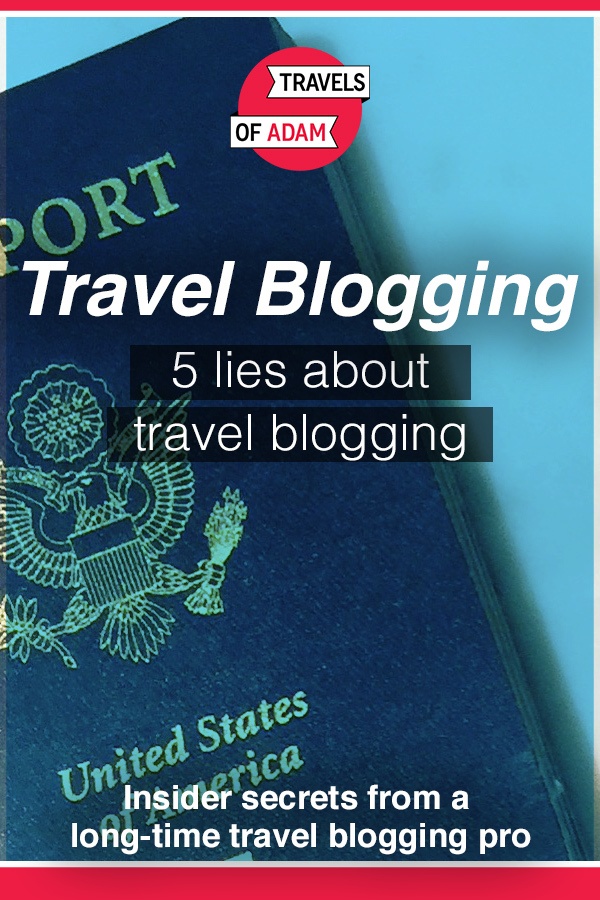
How to be a Successful Travel Blogger
Please indulge me for a second more.
The above travel blogging lies & secrets may make the industry sound pretty grim. The travel blogging industry wasn’t built in a day and it changes fast (very fast). There are so many ways to do it, so many ways to be successful.
The above commentary isn’t meant to discourage you from starting your own blog. I’m a serious traveler—addicted to seeing and being in and around the world. And I’m always looking for new ways to explore, new places, new ideas—like so many other travelers I know (those that blog…and, yes, those that don’t).
Thankfully there are still many bloggers out there who still believe in the industry. There are those willing to work tirelessly to continue changing and improving travel blogs. There are so many conferences and courses out there trying to teach you how to be a successful travel blogger, and while I’m sure many of them have their merits—some certainly do stand out.

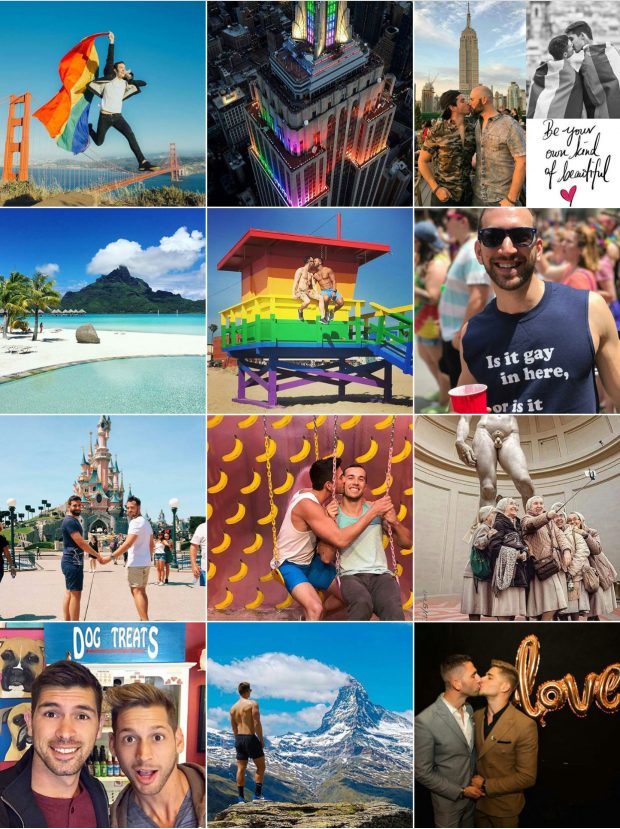
You’re right on the nose here, Adam with all your points. At the risk of seeming holier than thou, I’ve never engaged in the questionable tactics you’ve highlighted and, I hope, never will. I would much rather grow my influence and income slowly and ethically through quality writing than by engaging in unethical and underhand practices.
I’m glad to hear that Matt. And I do believe there are long-term benefits in following your own path that’s ethical. So while there are many short-term gains to be made with these sketchy, quick wins, there’s a lot to be said about doing things smarter and (arguably) better!
Preach on all of the above! I still want blogging to be fun, so I ignore a lot of the bullshit. And I will admit that the community I felt between bloggers in the early days feels distant, but I do occasionally still connect with bloggers in real and Internet life. I’m thinking about coming to Travel Con! I need an excuse to finally visit Austin.
I think a lot of us feel the same, Caroline. Blogging was always fun for me, too, but lately it’s been a bit more challenging. Hope to see you in Austin!
I love your blog and, in addition to its insightful commentary, what maintains my loyalty is that it remains a genuine and humble reflection of yourself. I used to be a regular reader of One Mile At A Time by Ben Schlappig, but as he became financially successful (claiming a $1 million plus annual income), the blog changed and, for me as a reader, its content has taken on a degree of arrogance and self entitlement that has destroyed my reader connection with the writer (in addition to more and more pushing affiliate links, leading too, to one wondering just how much of a business expense tax deduction is being taken to reviewed trips, at the expense of every taxpayer.).
Hi Stuart -thanks so much and I really appreciate that. And yeah, there are a lot of blogs out there that change dramatically as they get bigger and bigger. I definitely try to keep things as real as I can because, for me, blogging was always fun and always a way to connect with others.
Yeah, it pretty much needs to be said. I still refuse to engage in a lot of things that “successful” travel bloggers do. I’ll never spend money to gain followers and I’ll always focus on writing (certainly won’t do those top 10 lists). And I don’t mind if I’m not popular for sticking with my own integrity. I also really miss the blogging community–we used to have a great one in China in 2007-10, but most have faded away.
Ugh, it’s true – so many of my favorite bloggers have faded away… It’s a challenge today to keep things moving in a positive direction, I’m afraid.
I just started up my blog and I’m new to all of this, but this article was very eye-opening and sad too… Buying followers?! Come on! I’d rather have few of them, but honest ones…
Argh, yeah – it’s a bit of a crazy industry but eventually the authentic stuff will win out
Adam – thanks for this great article full of the realities. I think about this stuff all the time, yet never take the time to write it down – and you did! Bravo! I can’t agree more with you on all of these points, and I too have seen great travel bloggers (who are great travelers), go by the wayside. I feel like I have just been holding on to this cliff by my fingertips for a decade now as pebbles break off and drop past me dangling, but I just keep holding on hoping that all of these new schemes will come and go and that eventually PR companies and destinations and readers will wise up to all of the games. Keep up the excellent writing and work. I still remember seeing you in Berlin when you were first moving there…good memories! As well as your participation in Meet Plan Go!
Hi Sherry – been meaning to reply to your message. It’s been so long since we’ve chatted and I really appreciate you commenting on this. I remember fondly so many of those early days and the MPG event I was at in Boston, even. Hope things are going well for you, too!
[…] and more notoriety with each year. It’s something I’m extremely proud of, even if I sometimes seem grumpy or frustrated about the […]
Thanks for the best travel blog article I have ever read. The truth shines through, and I appreciate your warnings and shining light on the darker side of this business. I love to travel and write, but don’t know if I have the discipline and means to keep readers interested. I will re-read your five lies (I think they are truths) and continue to research on where my heart will lead. Thank you again for all your articles!
Hi Liz – wow, thanks for that accolade! As conflicted as I am about the travel blogging world, I still really value and appreciate a lot of it. And of course it’s led to some incredible opportunities and I’d hate for people to be discouraged from joining in. Just gotta be smart and kind and clever about it all, and anything is possible!
Good heart-felt article. I felt that your crescendo would be that you were giving up travel blogging rather than speaking at an industry event. But I take it that you will be crusading for honest blogging. I, too, have joined the blogging sector with Travelthoughts.net. I am using this to complement my YouTube channel. I am travelling while I create. I have been a journalist most of my career, so the writing isn’t that difficult for me. I am more interested in the YouTube side of things, as I dabbled in film-making many moons ago and am enjoying learning more about the craft. The part I dislike the most about the “process” is the vast amount of time you need to put into the social media marketing itself, which in most cases drives prospects to your offering. In the end, whether they return or build in numbers depends on the quality of the content.
Interesting points David – I think so much of the digital world offers so many different opportunities because you can experiment with things like YouTube and see what you enjoy, see what works for your own brand, see what helps build relationships and connections while still maintaining a certain level of professionalism. Good luck with your blog and YT!
Travel blogging was ruined by people like you accepting press trips and pumping affiliate links. Treat your audience with some respect – if you’re going to plug a shitty “how to be a travel blogger” course at least treat your audience with enough respect to say “this is an affiliate link wrapped with some shitty advice”.
Well okay then. For the record, everything is always disclosed here. And, not that it matters, but I wrote the blog first and then, because I’m a speaker at a conference, I was able to tie-in some promotion. Feel free to explore more of my blog to see how I actually write and work professionally ok thanks bye
Hi Adam, I read your post and I realized that I am lucky to be a Polish travel blogger. We do actually have a community. Not only online in FB groups but we meet once a year on a big meetup, we discuss, get to know each other. Later on when I go to other parts of the country I always have a fellow travel blogger to go out for a coffee with and this is great :)
Also I agree we are now travel-content makers but I think that written word is still very powerful. We just have to use it more strategically than before ;) Think of SEO, keywords, promotion plan – there’s so much more to it than just a good story. But is still is powerful.
Thanks for sharing these interesting thoughts.
Can’t agree more with the catch-22 you mentioned in #5! As much as I want to blog full-time, I can’t afford to it and need to fund my travel for the blog with a “regular” job. Thankfully I can work remotely anywhere with wi-fi. I also have a YouTube travel channel, but have been careful not to get lazy with my writing on the blog. I never want it to become another social media platform to funnel people to my YouTube channel, but a legitimate source of creative writing in its own right.
Thanks , I have recently been searching for information approximately this subject for
ages and yours is the best I have discovered so
far. However, what about the bottom line? Are you certain in regards to the supply?